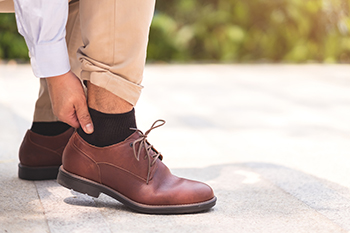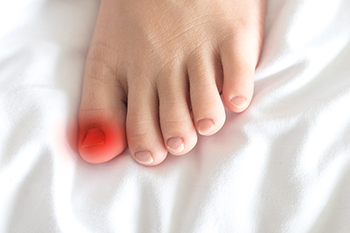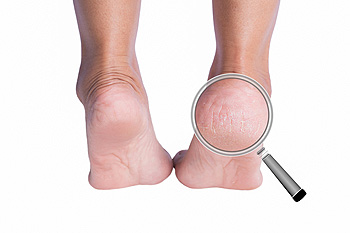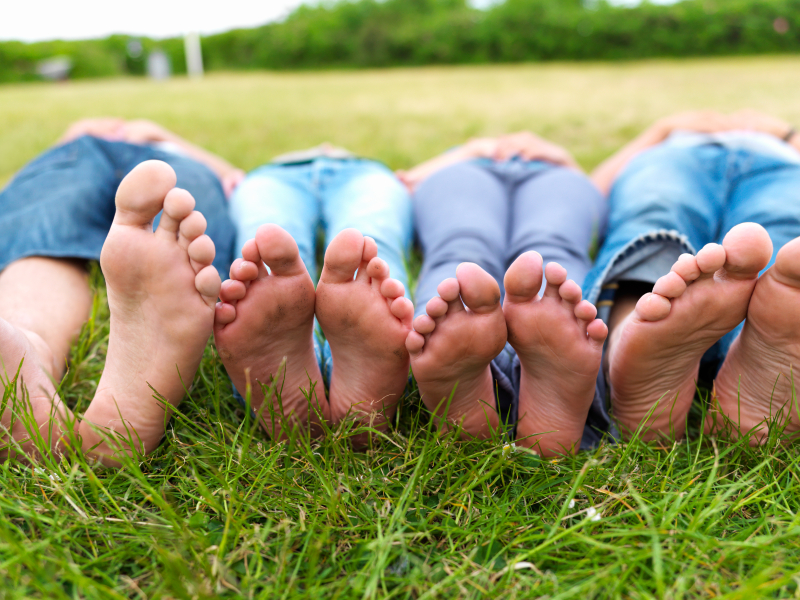
People who have jobs that require standing for most of the day may have sore feet. The feet absorb the body’s weight, and achiness may happen faster when incorrect shoes are worn. The body may have difficulty moving the blood from the feet to the heart, which may cause the feet and ankles to become swollen. The overall body can benefit when the feet are elevated as often as possible, and this can be done during a lunch or resting break. Many employers provide their employees with stress mats, which can provide adequate cushioning to protect the feet. Additionally, it is imperative to wear shoes that fit properly, preferably with a low heel. Many people enjoy soaking their feet in warm water at the end of the workday, which may help to improve circulation. If you would like more information about how to protect your feet while working, it is suggested that you confer with a podiatrist who can provide you with helpful tips.
While working on the feet, it is important to take the proper care of them. For more information about working on your feet, contact one of our podiatrists from Associates in Podiatry. Our doctors will treat your foot and ankle needs.
Working on Your Feet
Standing on your feet for long periods of time can cause stress and pain in your feet. Your whole body may experience change in terms of posture, back pain, bunions, callouses and or plantar warts. There are ways to avoid these conditions with proper foot care, smart choices and correct posture.
Positive Changes
Negative heeled shoe – Choosing this shoe type places the heel slightly lower than the ball of the foot. These are great for overall foot health. Find shoes that fit you correctly.
Go barefoot – Our feet were not designed to be enclosed for all hours of the day. Try to periodically expose your feet to air.
Eliminate Pain
Foot Exercises – Performing simple exercises, incorporating yoga and doing stretches are beneficial. This will allow increased blood flow to the area and muscles of the foot.
Achilles tendon – Stretching the foot out flat on the floor will relax the calf muscles and tendon. These exercises can be performed almost anywhere. Make sure you add these exercises to your daily regimen.
With a little bit of this information and knowing more about foot health, you will notice changes. Foot stretches and proper footwear will help with pain and prevent further issues.
If you have any questions please feel free to contact our offices located in Pittsburgh-South Hills, and Pittsburgh-Bellevue, PA . We offer the newest diagnostic and treatment technologies for all your foot and ankle needs.




